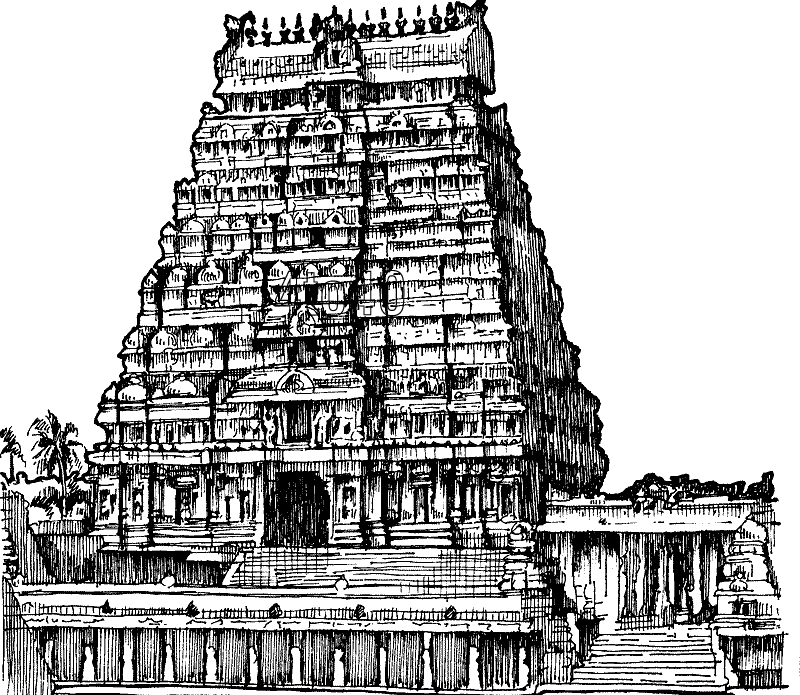LALITHA SAHASRANAMAM - Namah # 166
- S Subramaniam
- Jan 17, 2023
- 2 min read
LALITHA SAHASRANAMAM
@ S. Subramaniam

[ 47 Nirmama Mamatahantri Nishpapa Papanashini ]
निष्पापा (166)
Nishpapa (166)
Meaning:
Devi is without sins.

Interpretation:
Nish means Nothing / Nil and Papa means sin - hence Nishpapa means without any sin. When expanded, the term Nishpapa becomes Nishgatani papani yasyah sa - which again means Devi is devoid of any sin.

It is very important to understand here that Devi is beyond the definition of Papa and Punya. Then why Vaag Devi-s specifically address Devi as Nishpapa?. Reason is all the worldly actions revolve around Devi. The end result of any action is either Papa or Punya. By describing Devi as Nishpapa, Vaag Devi-s intend to show us clearly that the end results of the actions revolving around Devi do not affect her. Hence the question of Papa does not arise and Devi is Nishpapa.
Nishpapa in other texts

We find a mention of the expression Nispapa in the book Bhajana Rahasya by Srila Bhaktivinoda Thakura Mahasay, a compilation of verses describing the mercy of Lord Krishna:
स्वभाव-विहित-वृत्ति करिया आश्रय
निष्पाप जीवने कर कृष्ण-नामाश्रय
Svabhava Vihita Vṛtti Kariya Asraya
Niṣpapa Jivane Kara Kṛiṣhṇa Namasraya

A similar application of the word Nishpapa appears in Chaitanya Bhagavata by Bhoomipati Dasa. It comes as a description about a certain Brahmin who comes to see Sree Chaitanya Mahaprabhu dancing during his wandering in Nabadwip.
এক ব্রহ্মচারী বড সুব্রাহ্মণ সর্ব-কাল পযঃ-পান, নিষ্পাপ-জীবন দেখিতে তোমার নৃত্য
एक ब्रह्मचारी बड सु-ब्राह्मण सर्व-काल पयः-पान, निष्पाप-जीवन देखिते तोमार नृत्य
eka brahmachari bada su-brahmana sarva-kala payah-pana, nispapa jivana dekhite tomar nritya
A pious brahmana, who leads a sinless life and drinks only milk. He has a strong desire to see Your dancing….
Author's Notes:

What is a sin (papa) ?
In Hinduism or Sanatana Dharma the concept of sin (papa) is very different. There is NO divine law specifying what to do and what not to do and therefore transgressions of any such law is no sin at all.
Virtue and Sin - Punya and Papa are two sides of one and the same coin. What is Punya is not a Papa and vice versa. Hinduism insist more upon Karma theory and Dharma / Adharma concept and therefore Punya and Papa also depend on these two factors.

Paropakara Punyaya, Papaya Para-pidanam says the Sanskrit saying
Punya (virtuous deeds) are those acts that benefit other beings, and Papa (sinful acts) are those that cause harm to others.
Somebody is rushing towards a cow to kill it. You aim an arrow at him and kill him. Your act of killing that person is not a Papa but a Punya.
However the quantum of punishment for each kind of sin is very clearly defined. A detailed description of such punishments is narrated in the Garuda Purana. Likewise Punyas are also classified according to their merits. For example, Go dhanam (gifting of a cow) and Brahmana bhojanam (feeding an educated Brahmin) are bracketed in the highest order of Punyas.
Disclaimer: All matters contained in this article are the property of www.templesofasia.com. The opinions expressed in this article are purely that of the author. The author alone is responsible for the accuracy, authenticity, completeness and validity of all the information in the article.


Comments